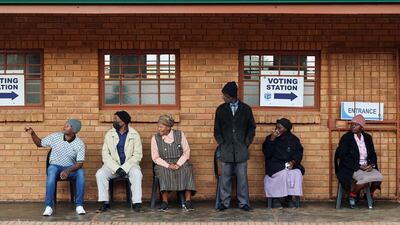South Africans have begun voting in an election that could upset the political order in the country, dominated by the African National Congress, the party of Nelson Mandela, which has ruled since the end of apartheid in 1994.
Security forces were preparing for potential disorder, including attempts to disrupt the polling. Voters will elect assemblies in nine new provincial legislatures, after which the new national parliament will choose the next president.
The country was brought to a standstill by rioting in 2021 following the arrest of former president and ex-ANC head Jacob Zuma, who was charged with corruption relating to a $2.5 billion arms deal.
If the ANC wins less than 50 per cent of the national vote, it will have to seek one or more coalition partners to govern, forming what would the first such alliance in its 30 years in power.
Polling stations opened at 5am GMT and will close at 7pm, with more than 27 million people registered to vote out of a population of about 62 million.
South Africa's electoral commission is expected to start releasing partial results within hours of voting stations closing. The commission has seven days to announce final results.
The ANC has won every vote since the end of white-minority rule in 1994 but its support slipped from a peak of almost 70 per cent in 2004 to 57.5 per cent in 2019 and most opinion polls suggest the party could lose its parliamentary majority for the first time.
While the ANC has dismissed the surveys, there is widespread disgruntlement over a 33 per cent unemployment rate, one of the world’s highest crime rates and the collapse of government services across much of the country. Inequality is soaring across the country, which has also been grappling with a severe energy crisis, with prolonged power cuts last summer.
Many analysts estimate the ANC may stay above 45 per cent. That would allow it to retain power by forming an alliance with at least one smaller party and exclude its main rivals – particularly Zuma’s uMkhonto weSizwe Party and the radical leftist Economic Freedom Fighters, which have both pledged to nationalise land and mines and would seek major concessions on policy and appointments.
It is thought it would also omit the business-friendly Democratic Alliance, currently the main opposition.

